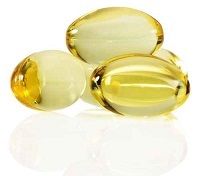Article
Study: Vitamin D Intake Doesn't Matter in Liver Chemistry
Author(s):
Many studies have looked at the link between vitamin D deficiency and liver disease. A Korean team recently examined whether vitamin D deficiency played a pivotal role in abnormal liver enzymes.

Deficiency in vitamin D has been shown to be associated with a higher prevalence of liver disease and with liver disease progressing more rapidly. But it is not clear if vitamin D intake plays a pivotal role in having a deficiency serum vitamin D and/or abnormal liver enzymes.
In a study reported April 23 at the 2015 International Liver Congress in Vienna, Austria, a South Korean team presented its findings using data from the Korean National Health and Nutrition Examinations. A total of 27,463 people participated and data covered the years 2008 through 2011.
Vitamin D deficiency was defined as levels below 20 ng/ml of 25-OH-vitamin D.
Ho Hyan Nam, of the Department of Internal Medicine, Hanyang University in Seoul led the study.
With colleagues, Nam found that serum vitamin D levels had a positive correlation with body mass index, fasting glucose, and aminotransferase activity.
Both vitamin D intake and whether subjects lived in rural or urban areas were found to be independent risk factors.
The total amount of vitamin D uptake was lower in those who lived in rural areas and was also lower in blue-collar workers than in those who lived in urban areas and had white-collar jobs. Serum vitamin D was also higher in subjects from rural areas.
The amount of vitamin D intake did not show any correlation with aminotransferase activity or metabolic parameters, they found.
Vitamin D deficiency, not vitamin D intake was an independent risk factor for abnormal liver enzyme only in obese and blue-collar subjects, they reported.
Their conclusions: "Vitamin D deficiency was a risk factor of elevated aminotransferase level and prevalence of metabolic syndrome in obesity," but, they added, the amount of vitamin D intake did not show any association with metabolic parameters or liver chemistry.




